- Home
- Jennifer Ashley
Death Below Stairs Page 3
Death Below Stairs Read online
Page 3
Sinead proved to be capable if not as well trained as I would have liked, but we got on, and she burst into tears only once. She ceased her sobbing after she cleaned up the salt she had spilled all over the lettuce and helped me pull the roasted fowl out of the oven, bubbling and sizzling, the aroma splendid. I cut off a tiny piece of meat and a speared a square of potato and shared them with her.
Sinead’s face changed to rapture. “Oh, ma’am, it’s the best I ever tasted.”
She exaggerated, I knew, although I suppose her comment was a testament to the previous cook’s abilities. I thought the fowl’s taste could have been richer, but I would not be ashamed to serve this dish.
Mr. Davis and the footmen were already in the dining room above. I rounded up the maids to help me load a tureen of steaming asparagus soup into the lift, followed by the lightly poached skate, and then when it was time, the covered plate of the carved fowl with roasted vegetables and the greens. I hadn’t had time to fix more than the brioche for pudding, and so I sent up fruit with a bite of cheese alongside the rich bread.
It was my habit never to rest until I heard from the dining room that all was well. Tonight, I heard nothing, not a word of praise—but not a word of complaint either. The majority of the plates returned scraped clean, although one of the three in each course was always only lightly touched.
Such a shame to waste good food. I shook my head over it and told the kitchen maids to pack away the uneaten portions to give to the beggars.
I’d learned long ago that not every person on earth appreciates good food—some don’t even know how to taste it. Instead of growing incensed as I’d done when I’d begun, I now felt sorry for that person and distributed the food to the cold and hungry who better deserved it.
“Who is the faint appetite?” I asked Mr. Davis when he, Mrs. Bowen, and I at last took our supper in the housekeeper’s parlor, with Sinead to wait on us.
“Tonight, Lady Cynthia,” Mr. Davis said between shoveling in bites of the pieces of roasted hen and potatoes I’d held back for us. “She is still most upset about the accident. She even wore a frock to dinner.”
Apparently, this was significant. Mrs. Bowen and Sinead gave Mr. Davis amazed looks.
One of the footmen—I thought his name was Paul—tapped hesitantly on the door of Mrs. Bowen’s parlor and entered when invited.
“I beg your pardon, ma’am,” he said nervously. “But his lordship is asking for his evening cup of coffee.” He swallowed, his young face rather spotty, his Adam’s apple prominent. He darted Mrs. Bowen a worried look. “He’s asking for Sinead—I mean Ellen—to deliver it.”
An awful hush descended over the room. I was struck by the paling faces of Mrs. Bowen and Mr. Davis and the unhappiness in the footman’s eyes, but mostly by the look of dread that came over Sinead.
She set down the teapot she’d lifted to refill Mrs. Bowen’s cup and turned to that lady pleadingly, distress in every line of her body.
Mrs. Bowen gave her a sorrowful nod. “You’d best be going on up, girl.”
Sinead’s eyes filled with tears, every bit of cheerfulness dying. She wiped her hands on her apron, curtsied, and said, “Yes, ma’am,” before she made for the door.
She found me blocking her way out. “Why?” I asked the room, not excluding the footman. “What is the matter with Ellen taking the master his coffee? Mrs. Bowen, Mr. Davis, you tell me this minute.”
Mr. Davis and Mrs. Bowen exchanged a long glance. Sinead would not look at me, her cheeks stark white and blotched with red.
It was Mrs. Bowen who answered. “I am afraid that his lordship occasionally believes in the idea of . . . I suppose we could call it droit du seigneur. Not often, fortunately.”
“Fortunately?” The word snapped out of me, my anger, which had touched me when I’d seen Daniel in the street, finally finding a vent.
I was well aware that a hazard for young women in service, no matter how grand the household, was that the master, and sometimes his guests, saw no reason not to help themselves to a maid, or a cook’s assistant, or, indeed, even a cook, when they fancied her. The young woman in question was powerless—all she could do was either give in or find herself another place. If she fled the house without reference, gaining new employment could be difficult. If she gave in to the master’s lusts, she risked being cast out with a stain on her character. If her own family would not let her come home or if she had no family, she had no choice but to take to the streets.
I had learned as a very young cook’s assistant to keep myself buried in the kitchen and rarely cross paths with the gentlemen of the household. As cooks seldom went above stairs, I had been able to keep out of sight. My ruin had been entirely my own fault and nothing to do with any house in which I’d worked.
“It does not happen often, does it?” I asked testily.
I was pleased that at least Mr. Davis and Mrs. Bowen looked ashamed, Mrs. Bowen bordering on wretched. “Only when his lordship has been made unhappy,” Mr. Davis said.
And he’d been made unhappy today by Lady Cynthia running down a man in the street, a story everyone in Mayfair likely knew by now. “Good heavens—why on earth do you stay here?” I demanded of all present. “There are masters respectable enough in other houses, and wives who will not put up with that sort of thing.”
Mr. Davis regarded me in some surprise. “We stay because it’s a good place. His lordship is generous to the staff. Always has been.”
“I see. And sending a young woman as sacrifice every once in a while is a small price to pay?” My mounting anger made my blood fire in my veins. “Well, I will not have it. Not in my kitchen.”
“Mrs. Holloway, I understand your unhappiness,” Mrs. Bowen said. “I share it. But what can we do? I try to keep the maids occupied away from his lordship, but it is not my house. Her ladyship ought to keep him under her eye, but she cannot.”
I full well knew Mrs. Bowen was right. Some gentlemen are high-handed enough to believe everything they do is justified. Those who have power and wealth behind them are only encouraged in their prideful thinking. The frail Lady Rankin likely knew what her husband got up to but hadn’t the strength to confront him about it.
My heart sank at the thought of having to look for another place when I’d only just found this one. The kitchen was well stocked, the house efficiently run, and the street near to an omnibus that would take me easily to the place in London where my heart was. Why, oh why, did Lord Rankin and his base needs have to ruin a perfectly good situation?
My fury made me reckless. “I won’t have it,” I repeated. “Ellen, sit down and calm yourself. I will take the master his coffee.”
3
They tried to stop me. I’d expected they would. I knew Mrs. Bowen, Mr. Davis, and the rest of the staff feared I’d stride into Lord Rankin’s private rooms and punch him in the nose like a champion boxer, or perhaps pour the steaming coffee into his lap.
I intended to do no such thing. I returned to the kitchen, prepared a tray with a porcelain cup, saucer, and coffeepot, arranged sugar and cream on the tray, and added a tiny, elegant spoon and a plate of cream biscuits I’d found in the larder.
I smoothed my hair, put on a fresh cap and apron, took the heavy tray in my own hands, and marched upstairs.
The entirety of the servants gathered at the bottom of the back stairs to watch me go, their eyes wide. The nervous footman Paul, who’d been sent to fetch Sinead, ran ahead of me and opened the door at the top of the stairs, and then took me to the master’s study on the second floor above the ground floor, in the back of the house.
Paul explained in a whisper that the study had a connecting door on one side that led to his lordship’s bedroom and a door on the other side to his wife’s bedchamber. I observed tartly that he must worry about getting them mixed up. Paul nearly choked on a laugh, and then he fled me, rushing back downstairs as
though fearing he’d be blamed for my boldness.
I set the tray, which was growing heavy, on a table in the hall outside Lord Rankin’s study and knocked on the door. When I heard the master say an abrupt, “Come,” I opened the door, lifted the tray, carried it inside, and set it on an empty table in the middle of the room.
Lord Rankin rose from behind a desk. He wasn’t very tall—he had perhaps an inch or so on me—but he was imposing. He had a commanding air that was focused on all in his path, which made one forget his height not many seconds after he fixed you with his stare. I imagined the gentlemen of both the Stock Exchange and the House of Lords quaked in their boots when he stood up to speak.
Lord Rankin’s build was trim but not thin, that of a man who prided himself on not being slovenly but who would not disdain a good meal. He had all his hair, which was very black, and sharp brown eyes that appeared to rapidly assess all he beheld.
Those all-seeing eyes rested on me as I closed the door and returned to the coffee. I did not fancy being shut in with this man, but I did not want to distress his wife or Lady Cynthia in case my voice carried down the hall, nor did I want the staff to creep up here behind me to listen.
“Who the devil are you?” Lord Rankin began his acquaintance with me by stating. “I sent for Ellen.”
“Ellen is very busy,” I said. “Cooks’ assistants have much to do, and I could hardly spare her. I am Mrs. Holloway, your cook. As I was the only person finished with her duties, I took it upon myself to carry up your coffee.”
Lord Rankin continued to drill his steely stare into me, his seeming calm like a layer of ice on an otherwise roiling lake. He looked me up and down, taking in my dark hair that was coming unraveled and the cuffs of my frock stained from cooking. I hadn’t had time to change more than my apron, and my attempt to look morally superior was having no impression on him.
“Mrs. Holloway,” Lord Rankin said coolly. “Please fetch a second cup from the cupboard behind you.”
Not at all what I expected him to say. I started visibly, and his expression grew sour. “At once, if you please,” he snapped.
Good heavens, did he mean for me to take the coffee with him? Before I could explain that oh no, sir, I was a servant and didn’t have meals or even coffee with the master of the house, he came around the desk, took me by the elbows, and bodily turned me in the direction of the cupboard.
It was then that I saw the second man. He wore a gentleman’s suit and stood by the window, gazing out into the darkness, his back to me.
I had no more than a glimpse before Lord Rankin gave me a little shove in the small of my back, sending me stumbling toward the cupboard. I bit back a cutting reply, yanked open the gilt and glass doors of said cupboard, and extracted a cup and saucer from the coffee and tea set there.
I closed the door, resisting the urge to slam it—my employer’s rudeness wasn’t the door’s fault. In the reflection of its glass, I saw that the master’s guest had turned from the window, every line of him taut with anger.
I nearly dropped the crockery. The gentleman at the window was Daniel McAdam.
A far cry from the roughly dressed man I’d seen on the street, he wore a black broadcloth coat that fitted over his shoulders with a smoothness that spoke of expense. His charcoal gray waistcoat complemented his coat, and a discreet watch chain led to a narrow pocket—nothing flashy or showy for Mr. McAdam. His hair had been brushed back from his forehead and tamed flat, which was one reason I hadn’t recognized him at once. Daniel’s unruly dark hair was usually a tangle rumpled by wind and work.
He appeared to be, in sum, a highly respectable gentleman of the City. He even had the haughty stance of a man who dealt with other people’s money all day long while making a hefty profit for himself at the same time.
Though I fumbled with the cup and saucer and my face must have been brilliant red, Daniel made no indication, neither with expression nor twitch of his face, that he knew me at all. He remained motionless, unflappable, simply watching while one of Lord Rankin’s staff got above herself.
I knew, however, that Daniel hadn’t needed to turn from the window. He could have kept himself hidden from me, and I’d never have been the wiser. But his eyes bore a deep sparkle of rage—not at me, but at Lord Rankin. He’d turned around because Lord Rankin had pushed me.
I longed to give Daniel a nod to let him know I was all right—the likes of Lord Rankin did not frighten me—but I didn’t dare. Whatever game Daniel was playing, he’d not thank me for blundering in and spoiling it.
I managed to carry the cup and its saucer to the table, deposit it, curtsy, and wait to be dismissed.
Lord Rankin waved his hand. “Go. I am not to be disturbed the remainder of the night. Tell Davis.”
I curtsied again, suddenly the most respectful servant alive. “Yes, my lord.”
I swung around, resisting the urge to glance at Daniel again, and scuttled out of the room. I made it onto the landing and hung on to the banisters to catch my breath.
But my ordeal was not over. Lord Rankin came out behind me and seized me by the elbow. I cut off my yelp of surprise, not wanting Lady Rankin or Lady Cynthia to hear and rush out to discover Lord Rankin in a half embrace with me.
“Say nothing at all about my guest,” Lord Rankin said rapidly into my ear. “Not a word to any of the staff, or my wife, or anyone in this household. Do you understand?”
He punctuated his question with shakes of my arm. Because Lord Rankin, as I said, was not much taller than me, I could look into his eyes, close to my own. I saw in them vast rage and also terrible fear. The fear surprised me. What on earth could worry him so?
I was not to find out tonight. Lord Rankin shoved me toward the top step and so abruptly released me that I nearly toppled down the stairs. I caught myself on the newel post, took one step down, and turned back.
“I would never betray a confidence,” I told him coldly. “Good night, my lord.”
I turned and walked down the stairs with all the dignity I could find in myself. I felt Lord Rankin watching me go, but when I reached the bottom of that flight and glanced up again, he had gone.
• • •
The staff, of course, surrounded me when I returned to the kitchen, demanding to know what had happened.
“Nothing at all,” I said, trying to keep the nervousness from my voice. I took off my clean apron and hung it on a peg, fresh for tomorrow. “I left the coffee things for his lordship, and he dismissed me.”
The maids, footmen, and Mr. Davis drew back, disappointed, as did Mrs. Bowen, though she feigned to be uninterested. I would say no more, but folded my lips and finished what I would need to before I retired for the night.
Going about my usual routine did not calm my mind as much as I would have liked. Seeing Daniel in Lord Rankin’s study had given me quite a shock. Knowing Daniel even now was a few floors above made my nerves jump and my atrocious curiosity flare.
This was not the first time I’d seen Daniel in a gentleman’s guise. I’d only known him before that as a cheerful deliveryman bustling about London, with a ready smile for everyone he encountered, until one evening last autumn when I’d spied him, unbeknownst to him, in Oxford Street. Daniel had been dressed in an elegant suit, similar to the one he wore tonight, and had been handing an equally elegant lady into a carriage. He’d only half explained the deceit when I taxed him with it, telling me he’d been watching people who needed to be watched.
Whether he was one of the police, a detective in plain clothes, perhaps, I had no idea. I did not think so, because Daniel came and went as he pleased and never spoke of reporting to anyone above him—not that I imagined he’d impart such information to me. He seemed to switch his personas at will, following no pattern, appearing and disappearing with no warning.
I knew that letting a man like Daniel into my life, more than I already had, wou
ld be the height of foolishness. I was still angry with him for his deception, not that my disapprobation had dampened his enthusiasm or his smiles. His smiles made him all the more dangerous.
I thought of the fear in Lord Rankin’s eyes, and wondered what had made Daniel come to him. Was Lord Rankin a man who needed watching? Or was he afraid of something and had asked for Daniel’s help? I had no idea, which frustrated me greatly.
At least my activities in the kitchen, done with briskness and a stern countenance, kept the others from questioning me. I performed the same tasks I did in every house, the continuity of them giving me a sense of command of my world. I measured a small quantity of yeast into a bowl, put in a splash of milk and sugar to proof it, then made notes about the dinner I’d prepared tonight in my little notebook in case I wanted to put together the same or similar dishes again. My hand trembled more than necessary, my penciled lines wobbling.
Once I finished writing, I added flour to the yeast and mixed up a fat dough, which I set in a cool place in the larder to rise for tomorrow’s bread.
I was undisturbed in all this. The other servants—aside from the scullery maid who, oblivious and singing, washed crockery at the sink in the next room—moved hurriedly past the kitchen if they neared it at all and let me be.
Only Mr. Davis did not fear to put his head in. “You might have got us all the sack,” he said, his eyes sparkling. “But good for you, Mrs. H. He needed his comeuppance.”
Before I could reply, he disappeared, but his praise comforted me somewhat. At least someone believed I had done right.
When I put out the lamps, lit a candle in a chamber stick, and headed for the back stairs, all the others, including the scullery maid, had already gone up, the hall dark and quiet. I drew a breath of relief as I walked through the echoing passage, the flagstones solid under my feet.
“Mrs. Holloway.”

 Grant
Grant Pride Mates
Pride Mates The Duke's Perfect Wife
The Duke's Perfect Wife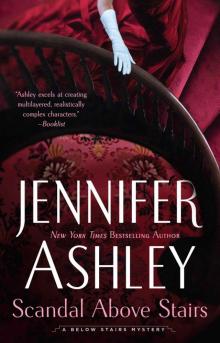 Scandal Above Stairs
Scandal Above Stairs White Tiger
White Tiger Midnight Wolf
Midnight Wolf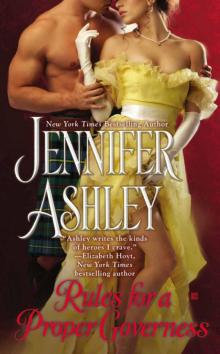 Rules for a Proper Governess
Rules for a Proper Governess Wild Wolf
Wild Wolf Bad Wolf
Bad Wolf Lion Eyes
Lion Eyes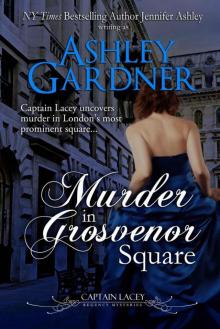 Murder in Grosvenor Square
Murder in Grosvenor Square The Untamed MacKenzie
The Untamed MacKenzie Wicked Deeds of Daniel Mackenzie
Wicked Deeds of Daniel Mackenzie Tiger Striped_Shifters Unbound
Tiger Striped_Shifters Unbound Murder Most Historical
Murder Most Historical Shifter Made
Shifter Made Mate Bond
Mate Bond Tiger Striped
Tiger Striped Bodyguard
Bodyguard Guardian's Mate
Guardian's Mate From Jennifer Ashley, With Love
From Jennifer Ashley, With Love The Longest Night
The Longest Night The Stolen Mackenzie Bride
The Stolen Mackenzie Bride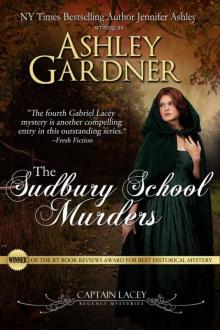 The Sudbury School Murders
The Sudbury School Murders The Care & Feeding of Pirates
The Care & Feeding of Pirates The Hanover Square Affair
The Hanover Square Affair Death Below Stairs
Death Below Stairs Wild Things
Wild Things Wild Cat
Wild Cat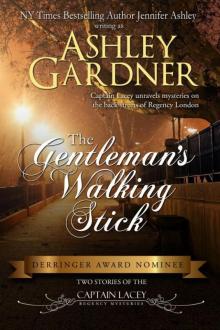 The Gentleman's Walking Stick
The Gentleman's Walking Stick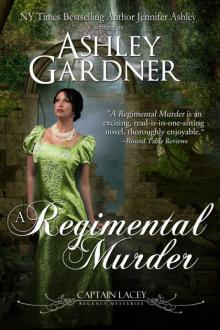 A Regimental Murder
A Regimental Murder Lone Wolf
Lone Wolf Forbidden Taste
Forbidden Taste Red Wolf
Red Wolf The Madness of Lord Ian Mackenzie
The Madness of Lord Ian Mackenzie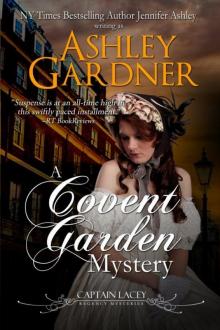 A Covent Garden Mystery
A Covent Garden Mystery The Pirate Next Door
The Pirate Next Door Past Crimes: A Compendium of Historical Mysteries
Past Crimes: A Compendium of Historical Mysteries Highlander Ever After
Highlander Ever After The Alexandria Affair
The Alexandria Affair A Shifter Christmas Carol
A Shifter Christmas Carol The Devilish Lord Will
The Devilish Lord Will Adam
Adam Kyle (Riding Hard Book 6)
Kyle (Riding Hard Book 6) A Body in Berkeley Square
A Body in Berkeley Square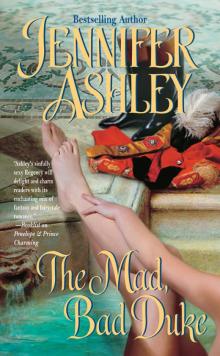 The Mad, Bad Duke
The Mad, Bad Duke Mate Claimed
Mate Claimed A Mackenzie Clan Christmas
A Mackenzie Clan Christmas The Seduction of Elliot McBride
The Seduction of Elliot McBride The Glass House
The Glass House Iron Master (Shifters Unbound Book 12)
Iron Master (Shifters Unbound Book 12) A Mackenzie Family Christmas: The Perfect Gift
A Mackenzie Family Christmas: The Perfect Gift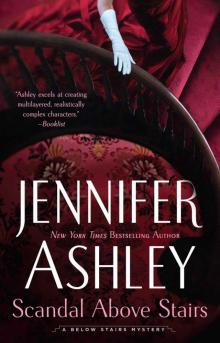 Scandal Above Stairs_A Below Stairs Mystery
Scandal Above Stairs_A Below Stairs Mystery Perfect Mate
Perfect Mate Murder in the East End
Murder in the East End Snowbound in Starlight Bend
Snowbound in Starlight Bend Hard Mated
Hard Mated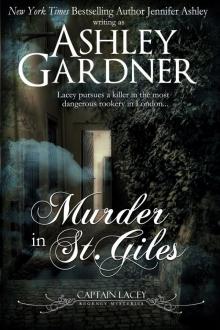 Murder in St. Giles
Murder in St. Giles Alec Mackenzie's Art of Seduction
Alec Mackenzie's Art of Seduction A MacKenzie Clan Gathering
A MacKenzie Clan Gathering Tyler
Tyler Lady Isabella's Scandalous Marriage
Lady Isabella's Scandalous Marriage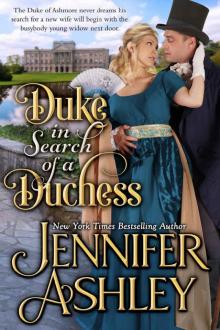 Duke in Search of a Duchess: Sweet Regency Romance
Duke in Search of a Duchess: Sweet Regency Romance A Death in Norfolk
A Death in Norfolk Give Me One Night (McLaughlin Brothers Book 4)
Give Me One Night (McLaughlin Brothers Book 4) Iron Master
Iron Master The Many Sins of Lord Cameron
The Many Sins of Lord Cameron A Disappearance in Drury Lane
A Disappearance in Drury Lane Never Say Never (McLaughlin Brothers Book 3)
Never Say Never (McLaughlin Brothers Book 3) Death in Kew Gardens
Death in Kew Gardens Ross: Riding Hard, Book 5
Ross: Riding Hard, Book 5 Ray: Riding Hard
Ray: Riding Hard A Soupçon of Poison
A Soupçon of Poison Tiger Magic
Tiger Magic The Pirate Hunter's Lady
The Pirate Hunter's Lady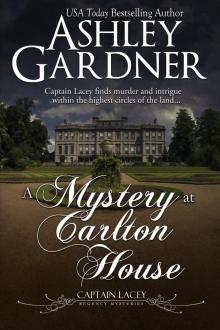 A Mystery at Carlton House
A Mystery at Carlton House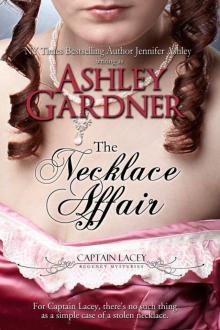 The Necklace Affair
The Necklace Affair Wolf Hunt
Wolf Hunt Scandal and the Duchess
Scandal and the Duchess Kyle
Kyle Why Don't You Stay? ... Forever (McLaughlin Brothers Book 2)
Why Don't You Stay? ... Forever (McLaughlin Brothers Book 2) Bear Attraction
Bear Attraction The Gathering
The Gathering A Mackenzie Yuletide
A Mackenzie Yuletide Wild Things (Shifters Unbound #7.75)
Wild Things (Shifters Unbound #7.75) The Redeeming
The Redeeming The Seduction of Elliot McBride hp-5
The Seduction of Elliot McBride hp-5 Death at the Crystal Palace
Death at the Crystal Palace Mackenzie Family Christmas: The Perfect Gift (highland pleasures)
Mackenzie Family Christmas: The Perfect Gift (highland pleasures) Forbidden Taste: A Vampire Romance (Immortals)
Forbidden Taste: A Vampire Romance (Immortals) Care and Feeding of Pirates
Care and Feeding of Pirates Shifter Made (shifters unbound)
Shifter Made (shifters unbound) Dark and Dangerous: Six-in-One Hot Paranormal Romances
Dark and Dangerous: Six-in-One Hot Paranormal Romances The Duke’s Perfect Wife hp-4
The Duke’s Perfect Wife hp-4 The Seduction of Elliot McBride (Mackenzies Series)
The Seduction of Elliot McBride (Mackenzies Series) Lady Isabella's Scandalous Marriage hp-2
Lady Isabella's Scandalous Marriage hp-2 BodyGuard (Butterscotch Martini Shots Book 2)
BodyGuard (Butterscotch Martini Shots Book 2) The Wicked Deeds of Daniel Mackenzie hp-6
The Wicked Deeds of Daniel Mackenzie hp-6 Tiger Magic su-5
Tiger Magic su-5 The Madness Of Lord Ian Mackenzie hp-1
The Madness Of Lord Ian Mackenzie hp-1 Alec Mackenzie's Art of Seduction: Mackenzies (Mackenzies Series Book 9)
Alec Mackenzie's Art of Seduction: Mackenzies (Mackenzies Series Book 9) Mackenzie Family Christmas: The Perfect Gift
Mackenzie Family Christmas: The Perfect Gift Bodyguard (Shifters Unbound #2.5)
Bodyguard (Shifters Unbound #2.5) Midnight Wolf (A Shifters Unbound Novel)
Midnight Wolf (A Shifters Unbound Novel) White Tiger (A Shifter's Unbound Novel)
White Tiger (A Shifter's Unbound Novel) Cowboys Last All Night
Cowboys Last All Night Pride Mates su-1
Pride Mates su-1 Hard Mated (shifters unbound )
Hard Mated (shifters unbound ) Bodyguard (shifters unbound )
Bodyguard (shifters unbound ) Snowbound in Starlight Bend: A Riding Hard Novella
Snowbound in Starlight Bend: A Riding Hard Novella The Untamed Mackenzie (highland pleasures)
The Untamed Mackenzie (highland pleasures) The Untamed Mackenzie (Mackenzies Series)
The Untamed Mackenzie (Mackenzies Series)![Highland Pleasures [6] The Wicked Deeds of Daniel Mackenzie Read online](http://i1.bookreadfree.com/i2/04/07/highland_pleasures_6_the_wicked_deeds_of_daniel_mackenzie_preview.jpg) Highland Pleasures [6] The Wicked Deeds of Daniel Mackenzie
Highland Pleasures [6] The Wicked Deeds of Daniel Mackenzie Lone Wolf (shifters unbound)
Lone Wolf (shifters unbound)![Shifters Unbound [5] Tiger Magic Read online](http://i1.bookreadfree.com/i2/04/11/shifters_unbound_5_tiger_magic_preview.jpg) Shifters Unbound [5] Tiger Magic
Shifters Unbound [5] Tiger Magic Tyler (Riding Hard Book 4)
Tyler (Riding Hard Book 4) Ross
Ross Bad Boys of the Night: Eight Sizzling Paranormal Romances: Paranormal Romance Boxed Set
Bad Boys of the Night: Eight Sizzling Paranormal Romances: Paranormal Romance Boxed Set From Jennifer Ashley, With Love: Three Paranormal Romances from Bestselling Series
From Jennifer Ashley, With Love: Three Paranormal Romances from Bestselling Series The Longest Night: Fantasy Romance (Nvengaria Book 4)
The Longest Night: Fantasy Romance (Nvengaria Book 4) The Many Sins of Lord Cameron hp-3
The Many Sins of Lord Cameron hp-3 Mate Claimed su-4
Mate Claimed su-4